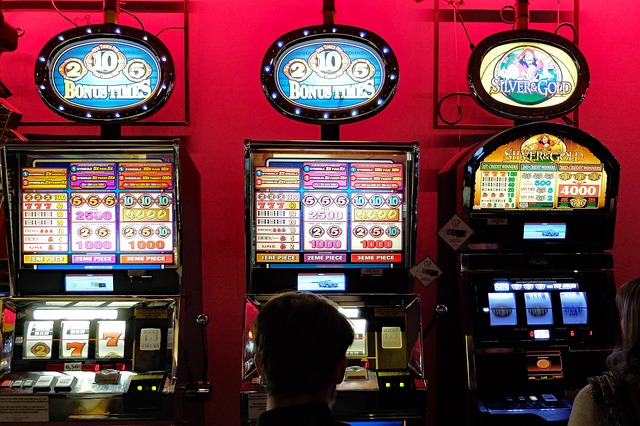Slot machines are among the most popular games in both land-based and online casinos. Their flashing lights, engaging themes, and simple gameplay attract millions of players worldwide. But behind every spin lies a carefully designed system that combines chance with technology. Understanding how slot machines truly work—especially their use of random number generators (RNGs) and core mechanics—can help players make informed decisions and enjoy the game responsibly.
While many believe in hot streaks, “due” wins, or patterns in slot behavior, the truth is far more mathematical. Every spin is independent, determined by invisible code and probability. This article breaks down the inner workings of modern slot machines and clears up common misconceptions.
What Is RNG and Why It Matters
At the heart of every slot machine is a Random Number Generator (RNG). This is the software algorithm responsible for creating thousands of number combinations per second. When you press the spin button, the RNG selects a number sequence that corresponds to a specific arrangement of symbols on the reels.
The key thing to understand is that this process is entirely random and not influenced by past spins. Whether you’ve just won or lost several times in a row, the odds of the next spin remain exactly the same.
In regulated markets, RNGs are tested and certified by third-party labs to ensure fairness and unpredictability. This prevents both players and operators from manipulating the results. It’s this system that guarantees each spin is independent and fair, regardless of how the machine has been performing.
Symbols, Reels, and Paylines

Classic mechanical slot machines featured physical reels with symbols painted on them. Today, both online and land-based machines use virtual reels displayed on screens. These reels are filled with different symbols—bars, sevens, fruits, wilds, scatters—each programmed with a certain probability of appearing.
A payline is a pattern across the reels that determines winning combinations. Early slots had just one horizontal payline, but modern slots can have hundreds or even thousands of paylines, including zigzags, diagonals, and multiple combinations per spin.
When the RNG stops the reels, the game checks whether the symbols align on one or more paylines to trigger a payout. Some symbols may also activate bonus rounds, free spins, or jackpots.
Knowing how paylines work and how many are active in your game helps you understand what you’re betting on and how wins are calculated.
Slot Volatility and Return to Player (RTP)
Two critical concepts in slot machine mechanics are volatility and Return to Player (RTP).
Volatility refers to how often and how much a slot pays out:
- High-volatility slots pay less frequently but offer larger potential wins.
- Low-volatility slots offer smaller, more frequent payouts.
Your choice should reflect your bankroll and playing style. If you enjoy longer play sessions and steady wins, low-volatility games may suit you better. If you’re chasing big jackpots, high-volatility slots could be more appealing.
RTP, on the other hand, is the percentage of total wagered money a slot is expected to return to players over the long run. For example, a slot with 96% RTP will, in theory, return $96 for every $100 wagered—though results vary widely in the short term.
Understanding these metrics helps you pick games that align with your expectations and risk tolerance.
Bonus Features and Game Enhancements

Modern slot machines are more than spinning reels—they’re packed with bonus rounds, multipliers, wilds, and free spin triggers designed to increase excitement and engagement.
Common bonus features include:
- Wild Symbols: Replace other symbols to complete winning combinations.
- Scatter Symbols: Trigger free spins or bonus games regardless of position.
- Multipliers: Multiply your winnings, sometimes up to 100x or more.
- Pick-and-Click Games: Let you choose hidden items for instant prizes.
- Expanding Reels and Cascades: Create additional chances to win.
These features are pre-programmed into the game’s mechanics and governed by the RNG just like the base game. They don’t change your chances of winning but can affect the payout structure and entertainment value.
Are Slot Machines Rigged?
One of the most common questions players ask is whether slot machines are rigged. The answer depends on where you play. In licensed and regulated casinos, both online and offline, slot machines must pass regular audits and inspections. Their RNGs are certified for fairness, and payout percentages must meet legal standards.
However, unregulated or illegal casinos may offer games that are not properly tested or may even be manipulated. This is why it’s important to only play at licensed casinos that publish their game RTPs and use verified software providers.
The house always has an edge, but it doesn’t mean players can’t win. It simply means that over time, the casino will make a profit. The randomness of each spin still allows for big payouts—even jackpots—within that structure.
Slot machines may appear simple, but behind their colorful graphics lies a sophisticated system governed by algorithms and probability. By understanding how RNGs, paylines, symbols, volatility, and bonuses work, players can approach the game with better insight and more realistic expectations.
While there’s no guaranteed way to win on slots, being informed is your best strategy. Recognizing how the machine operates will help you enjoy the experience without falling for myths or false strategies—and that’s a win in itself.
